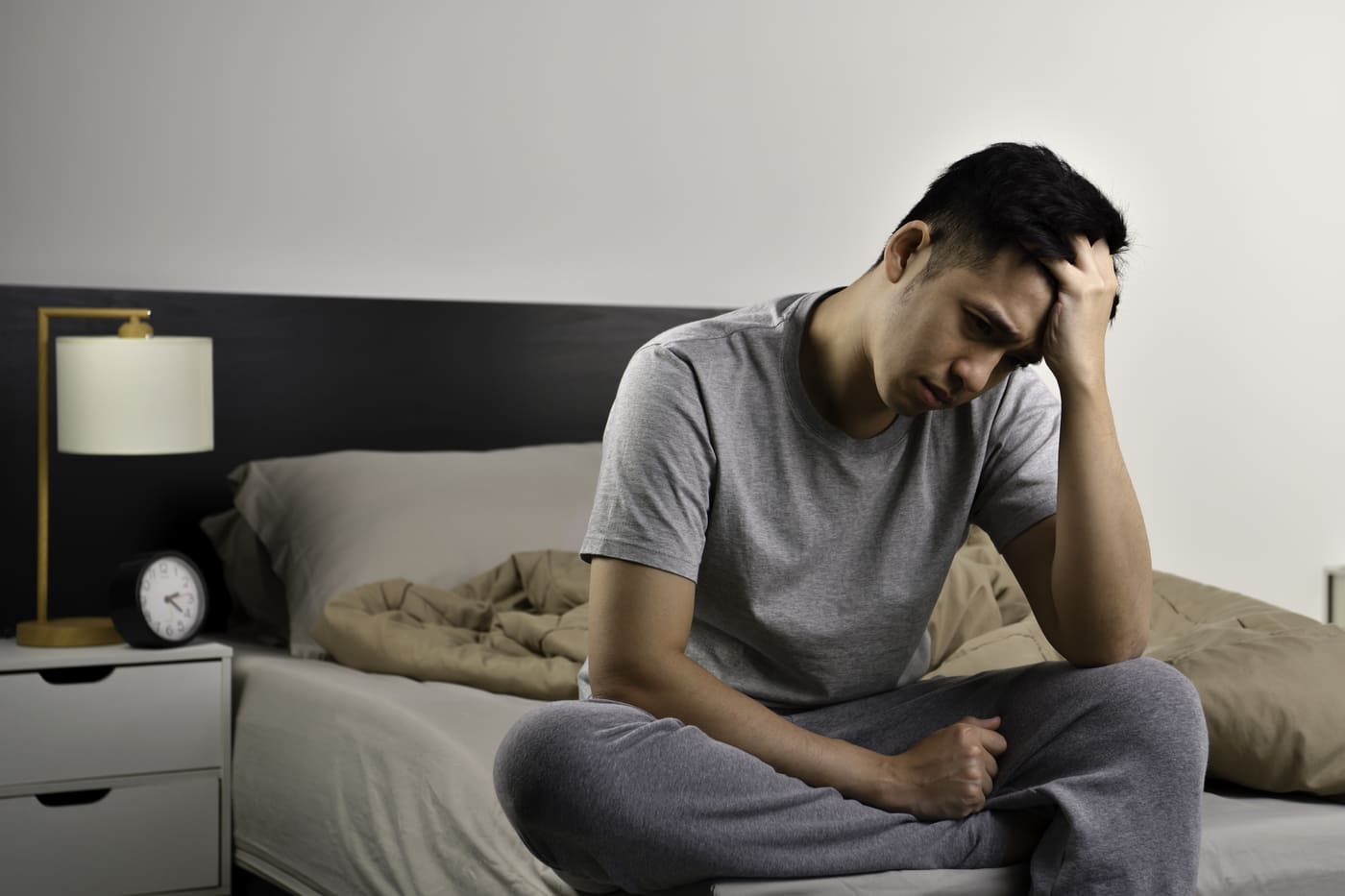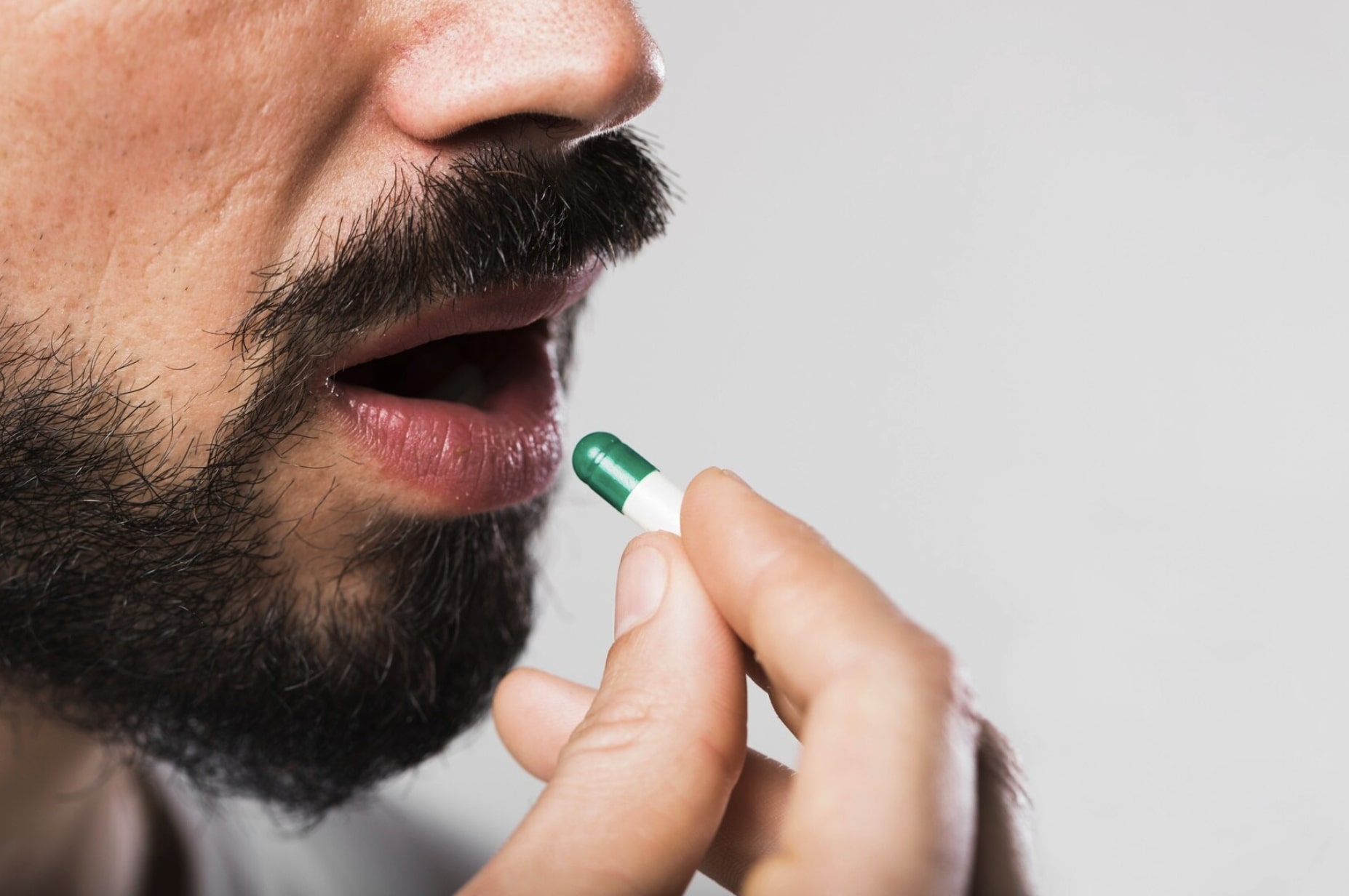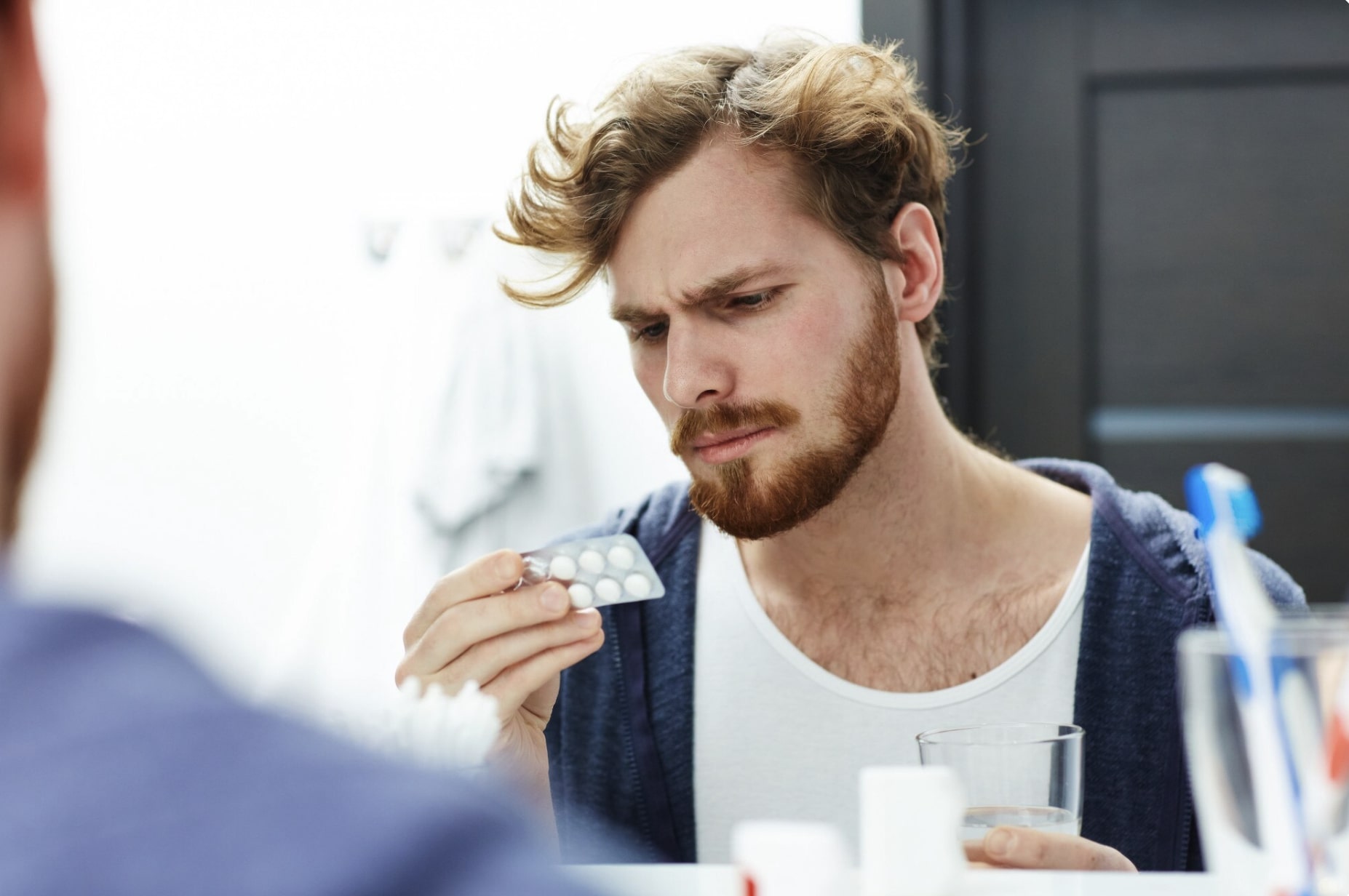For many men, feeling tired, irritable, or down for no apparent reason can be a frustrating part of daily life. Men who are struggling with energy, mood, or motivation may be experiencing low testosterone, which can contribute to depression.
Both low T and depression are common in men, particularly those over the age of 30. Research has shown that depressive symptoms have been reported in 35-50% of male patients with hypogonadism (low testosterone). (1)
In this article, we’ll dive into the science behind how low testosterone can contribute to depression, and explore real, evidence-based solutions that will help men experiencing these issues feel like themselves again and improve their overall well-being.
What Is Low Testosterone?
Testosterone is often associated with physical strength and sex drive, but it does much more than that. It's a hormone that plays a central role in regulating metabolism, bone density, energy levels, and your mood.
Testosterone is also important for making sperm, keeping muscles strong, influencing hair growth, making red blood cells, and more. (2)
When testosterone levels drop below the normal range, the condition is known as hypogonadism, or more commonly, low testosterone. While low T is typically associated with older men, it can begin affecting men as early as their 30s, with levels continuing to decline about 1% per year after.
Common Low Testosterone Symptoms
Recognizing the signs of low T is often the first step toward getting help. While symptoms can vary from person to person, they most commonly include:
- Low energy and persistent fatigue
- Decreased sex drive or performance issues
- Mood changes, including irritability and sadness
- Reduced muscle mass or difficulty maintaining strength
- Weight gain, particularly around the midsection
- Trouble focusing or staying motivated
- Poor sleep quality
These symptoms don’t just affect your body—they can seriously impact your relationships, work performance, and overall quality of life.
Understanding Depression in Men
Depression tends to be thought of as feeling sad or hopeless. However, depression can manifest itself differently in men. Many men may not even realize they're struggling with depression, because the symptoms often present in ways that aren’t always obvious.
Men are more likely to describe anger, frustration, or withdrawal rather than sadness. (3) They may throw themselves into work, isolate themselves from loved ones, or develop unhealthy habits to cope. Depression can also present with physical symptoms such as headaches, digestive issues, sleep disruptions, or ongoing fatigue. (4)
Some of the most common depression symptoms in men include:
- Persistent irritability or anger
- Loss of interest in hobbies or activities
- Lack of motivation or concentration
- Changes in sleep—either sleeping too much or not enough
- Appetite changes, often leading to significant weight loss or gain
- Feeling empty, numb, or disconnected
Because the emotional and physical signs of low testosterone and depression often overlap, it’s easy to confuse one for the other—or potentially—miss both entirely.
Low testosterone and anxiety are also linked. (6) Low testosterone affects mood, sleep, sexual performance, and concentration, all of which can manifest themselves as increased anxiousness and tension.
How Are Low T and Depression Connected?
So, can low T cause depression? According to a growing body of research, the answer is often yes, particularly in men with clinically low testosterone levels. (1)
Biological Connection: Hormones and Brain Chemistry
Testosterone isn’t just about sex drive and muscle mass. It plays a vital role in regulating mood and cognitive function. Low testosterone levels can disrupt your neurotransmitter balance, especially the levels of dopamine, serotonin, and GABA—three key chemicals that affect motivation, stress response, and emotional stability. (6) (7)
- Dopamine helps regulate pleasure and reward. Low testosterone has been shown to decrease dopamine activity, which can lead to low motivation and an inability to feel joy—two hallmark symptoms of depression.
- Serotonin, often called the "feel-good chemical," is also influenced by testosterone. Low serotonin levels are associated with mood disorders, and studies suggest testosterone may help boost serotonin receptor sensitivity.
- GABA (gamma-aminobutyric acid) is responsible for calming brain activity. Lower testosterone levels may reduce GABA activity, increasing susceptibility to anxiety and irritability.
Evidence has suggested that the link between low testosterone and depression is particularly prevalent in aging men. Beginning at approximately age 50, men secrete progressively lower amounts of testosterone, and about 20% of men over age 60 have lower-than-normal levels. Data suggest that some depressed older men may also be experiencing low testosterone levels and that some depressed men may improve with androgen treatment. (8)
Can Depression Also Lower Testosterone?
It’s also important to note that depression itself can suppress testosterone production. Chronic psychological stress, sleep deprivation, and elevated cortisol (the body’s stress hormone) can interfere with the brain’s ability to signal the testes to produce testosterone.
This creates a vicious cycle in men’s bodies: low testosterone increases depression risk, and depression can make testosterone drop even further. Many men unknowingly get caught in this loop—treating only one side or the other, not recognizing the missing piece.
How to Tell the Difference Between Low T and Depression
Because the symptoms of low testosterone and depression are so similar, it’s important to understand which condition—or combination of both—is behind what you’re feeling. That’s where testing comes in.
A simple blood test can reveal your total testosterone levels and provide valuable insight into whether a hormone imbalance is contributing to your mental health challenges. You may also be evaluated for other markers like free testosterone, estradiol, and SHBG (sex hormone-binding globulin).
Signs that Low T might be the underlying issue include:
- Emotional changes with low libido or erectile dysfunction
- Depression symptoms developed gradually alongside fatigue or weight gain
- A lack of drive or physical strength without any clear reason
- Minimal improvement from antidepressants or talk therapy
Testing takes the guesswork out of the equation—and it’s one of the fastest ways to determine if you’re dealing with depression, low testosterone, or both.
Treatment Options
If you've discovered that low testosterone may be contributing to your mood changes, the good news is that there are real, effective solutions for men. Whether your symptoms lean more toward classic low testosterone or overlap with depression, the right treatment can make a big difference in your day-to-day moods, stress levels, and sex drive.
The Impact of TRT on Depression
Testosterone Replacement Therapy (TRT) is a medical treatment that restores testosterone to healthy levels using methods like injections, gels, or pellets. It’s tailored to your individual lab results and symptoms—and overseen by qualified providers, such as those at your local Gameday Men’s Health.
TRT for depression can work to replenish testosterone levels in men whose natural production has decreased. This boost in testosterone has a direct impact on brain function, particularly in areas involved in mood regulation, motivation, and emotional stability. When testosterone is restored to normal levels, many men experience happier moods, reduced irritability, and a better overall sense of well-being.
TRT can also play a role in the function of dopamine, serotonin, and GABA (gamma-aminobutyric acid), which can help the brain better process emotions, increasing your resilience to stress and better regulating your emotional health.
Long-Term Benefits of TRT on Mental Health
For men dealing with both low testosterone and depression, TRT can offer long-term benefits by providing sustained relief from depressive symptoms. Unlike medications like antidepressants, which often have side effects and may take weeks to show results, TRT works by directly addressing low testosterone levels quickly and efficiently, which may be a significant cause of mental health-related issues.
However, it’s important to note that TRT is not a first-line treatment for depression unless hypogonadism is confirmed. In men with clinically low T, TRT may improve mood but should not replace antidepressants in men with major depressive disorder unless under medical supervision.
Lifestyle Changes
In addition to TRT, certain lifestyle changes can help balance both mood and testosterone levels, including:
- Regular exercise: Particularly strength training, which can boost testosterone levels.
- Eat a balanced diet: Foods rich in healthy fats, protein, and essential nutrients support testosterone production.
- Get enough sleep: Lack of sleep can lower testosterone levels and negatively impact mood. Aim for 7-9 hours per night.
- Manage stress: Chronic stress can lower testosterone and contribute to feelings of depression. (9)
Reclaiming Your Health Starts with a Simple Test
If you’ve been battling low energy, a sense of emptiness, or unexplained mood changes, don’t ignore what your body’s trying to tell you. Whether the root cause is depression, low testosterone, or a combination of both, getting clarity is the first step toward getting back on track.
At Gameday Men’s Health, we make that first step easy. With complimentary, no-pressure testosterone testing, you’ll get the data you need to make informed decisions about your health—without the hassle or long wait times.
If you’re tired of not feeling like yourself or are simply struggling with sexual health, mood swings, irritability, lack of sleep, or other issues that may be caused by low T or depression, contact your local Gameday Men’s Health location today.
References
- The association of hypogonadism with depression and its treatments
- Could you have low testosterone?
- Signs of Depression in Men: How to Spot Men’s Mental Health Issues
- Low Testosterone and Depression: Is There a Connection?
- Can Low Testosterone Cause Anxiety and Depression?
- Testosterone induces molecular changes in dopamine signaling pathway molecules in the adolescent male rat nigrostriatal pathway
- The Crucial Link Between Testosterone and Depression: Why It Matters for Both Men and Women
- Testosterone and depression in aging men
- High Stress Can Cause Testosterone to Drop











